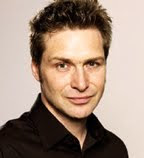 Even if you scour dozens of reviews, you still might not know what to expect from The Hangman's Daughter by Oliver Pötzsch. The reason is simple. There are plenty of distractions for reviewers to grasp at even though it's a crime thriller set in the 1600s.
Even if you scour dozens of reviews, you still might not know what to expect from The Hangman's Daughter by Oliver Pötzsch. The reason is simple. There are plenty of distractions for reviewers to grasp at even though it's a crime thriller set in the 1600s. If the novel were set in modern times, it might be the story of a reluctant prosecutor, bound by obligation to the state to sentence an innocent person even if they know the accused is innocent. And while carrying out his duty, he invests equal time in finding the real criminals. But it's not set in the 21st century.
The Hangman's Daughter is a fantastical historic fictional thriller.
The story takes place in the village of Schongau, Bavaria, in 1659. The principal protagonist, Jakob Kuisl, is a hangman, a trade like any other, passed down from one generation to the next just like most farmers, blacksmiths, and merchants were.
Kuisl doesn't just hang people. There is much more to his profession as a town executioner than meets the eye. He is responsible for other extolling punishments and extracting confessions. When he is not on the clock, he also dabbles in herbal medicines that most people consider akin to black magic (except, of course, when they have a need for herbal remedies).
When twelve-year-old Peter Grimmer is pulled from the river near dead and the villagers spot the mark of a witch on the boy's shoulder, hysteria quickly takes hold and grows as more children are murdered. They immediately suspect midwife Martha Stechlin who, much like Kuisl, practices herbal remedies albeit focused more on women and childbearing.
 The suspicion is almost immediate, given Grimmer and other orphan, adopted, or otherwise outcast children are often seen playing near the woman's house. Grimmer's father had also long blamed the midwife for the death of his own wife during a complicated childbirth. Conversely, this places Kuisl in a strange position because he knows Stechlin is not a witch and feels indebted to her for bringing his youngest children, twins, into the world.
The suspicion is almost immediate, given Grimmer and other orphan, adopted, or otherwise outcast children are often seen playing near the woman's house. Grimmer's father had also long blamed the midwife for the death of his own wife during a complicated childbirth. Conversely, this places Kuisl in a strange position because he knows Stechlin is not a witch and feels indebted to her for bringing his youngest children, twins, into the world. So while performing his dubious trade of extracting a confession, he also sets out to discover the truth with the aid of the local physician's son, Simon Fronwieser. Fronwieser has a kinship with Kuisl for two reasons. He respects the hangman's medicine more than his father's focus on the four humors. He is in love with Magdalena Kuisl, the hangman's beautiful 20-year-old daughter.
The only trouble with his infatuation are the taboos associated with an executioner's daughter. As much as executioners are needed to carry out sentences, they and their families are shunned for a profession that walks lock step with death. Most people in the town suspect he has been bewitched by the outspoken and studied girl.
A Bit About The German Author Oliver Pötzsch.
Most distractions over the recently translated book are associated with the added bit that Pötzsch is an actual descendent of the executioner’s dynasty. His portrayal of principal protagonist Johann Jakob Kuisl is based on his great-great-grandfather. The Kuisls not only existed, but also did work as executioners and had a reputation as healers.
 Pötzsch, born in 1970, has worked for years as a scriptwriter for Bavarian television and briefly for radio. He took time off to write his first book, which blended his passion for both storytelling and genealogy. He has written three historical novels centered around the Kuisl family and another historical novel. To date, not all of the work has been translated.
Pötzsch, born in 1970, has worked for years as a scriptwriter for Bavarian television and briefly for radio. He took time off to write his first book, which blended his passion for both storytelling and genealogy. He has written three historical novels centered around the Kuisl family and another historical novel. To date, not all of the work has been translated. It's especially interesting that he also has a passion for dispelling the stereotypes of executioners as portrayed in film. The book was translated by respected translator Lee Chadeayne. Chadeayne does a fine job keeping the prose modern, despite some readers who protest the work is too pulpy.
The Hangman's Daughter Is A Cut Above At 6.8 On The Liquid Hip Richter Scale.
The prose won't wash over you as a work of literature, but the story is entertaining with a fresh voice. The research, especially as it pertains to the town of Schongau, adds an additional layer of interest. Some people paint it up as a mystery, but a slow burn thriller fits better. The translation is mostly contemporary and will feel out of place at times. But the language beats any historical thrillers that try too hard.
The Hangman's Daughter can be found on Amazon. You can also find The Hangman's Daughter by Oliver Pötzsch at Barnes & Noble.
![Liquid [Hip]](https://blogger.googleusercontent.com/img/b/R29vZ2xl/AVvXsEjAFBQPqS7J0-rrttNoRYSsuwIePPZf4Nq6sqDioK1zzVQXJIQXKzq_NVNI4n6h3inuRQFBKOcJeZeSufkdHHIOxbSWyBjTjTxgKEQGyPzdwvkEEeECh4bI5YEGk4RWGUINSd7vulPQsCA/s1600-r/liquidhip.jpg)